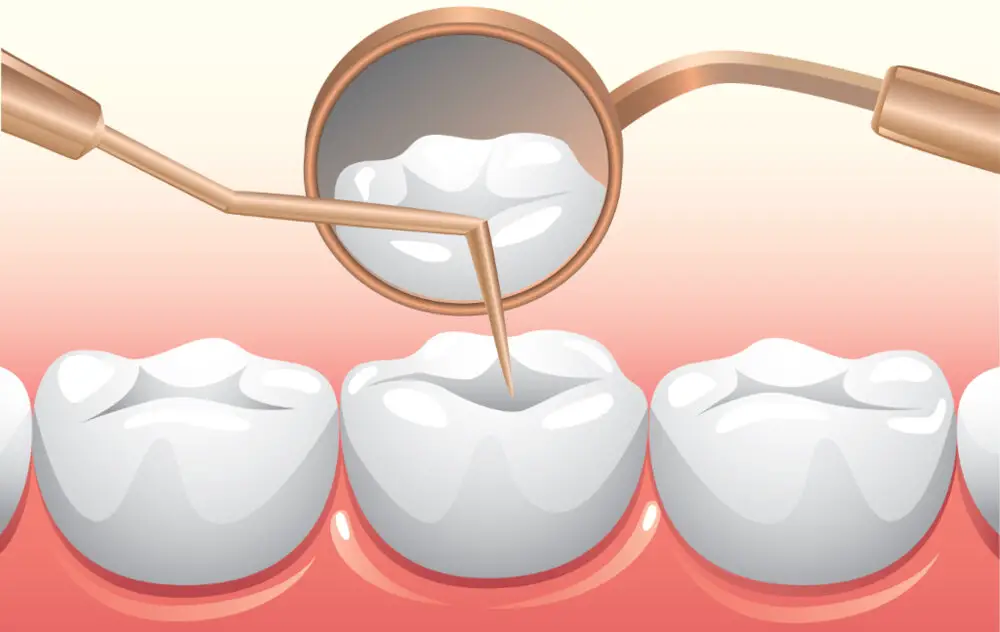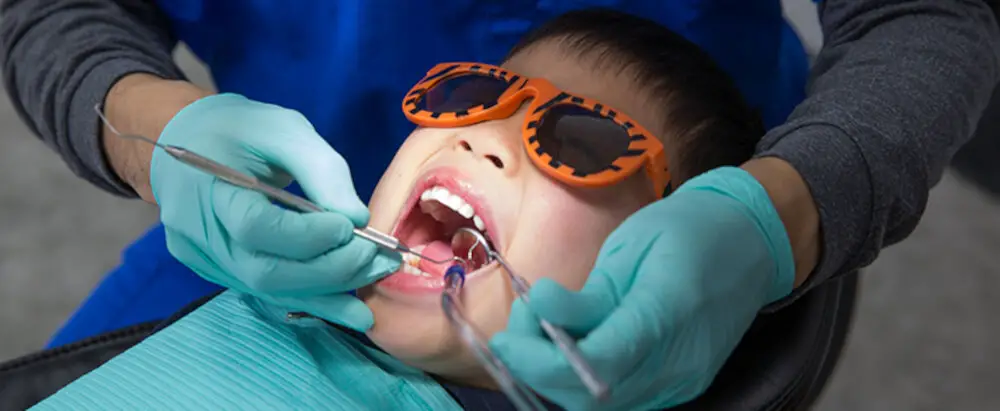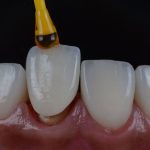Quick Relief: How Long Does Numbness Last After Wisdom Teeth Removal?

Wisdom teeth removal is a common dental procedure that many people undergo at some point in their lives. While the procedure itself is relatively straightforward, there are often questions and concerns about the recovery process. One of the most frequently asked questions is how long numbness will last after wisdom teeth removal. Numbness is a common side effect of the procedure, and while it can be uncomfortable, it is usually temporary. In this article, we will discuss what causes numbness after wisdom teeth removal and how long it typically lasts. The duration of numbness after wisdom teeth removal can vary from person to person depending on several factors. These factors can include the complexity of the extraction, the number of teeth removed, and the individual’s pain tolerance. However, in most cases, numbness should only last a few hours to a few days. If numbness persists beyond this timeframe, it is essential to contact your dentist or oral surgeon to ensure that there are no complications. In the following sections, we will explore the causes of numbness after wisdom teeth removal and provide tips on how to manage this common side effect.
Wisdom teeth removal is a common dental procedure that involves extracting the third set of molars located at the back of the mouth. The procedure is typically performed under local anesthesia, which numbs the area around the tooth to be extracted. However, there is a possibility of numbness or tingling in the lips, tongue, and cheeks due to the close proximity of the nerves to the wisdom teeth. This numbness can last for several hours or days, depending on the individual and the complexity of the extraction. While it may be uncomfortable, it is a normal part of the healing process and should subside within a few days.
Knowing how long numbness lasts after wisdom teeth removal is crucial for many reasons. Firstly, it helps you prepare for the recovery process and manage your expectations. If you know how long you can expect to experience numbness, you can plan accordingly and make sure you have the right supplies and support during that period. Secondly, it can help you identify any potential complications or issues. If your numbness lasts longer than expected, it could be a sign of nerve damage or other problems that require medical attention. Finally, understanding how long numbness lasts can help you manage any discomfort or pain you may experience. If you know that the numbness is temporary, it can make it easier to cope with any discomfort until it subsides. Overall, knowing how long numbness lasts is an important part of the recovery process after wisdom teeth removal.
Understanding the Causes of Numbness

Numbness is a common sensation that occurs when a part of the body loses its sensation or feeling. Although numbness is not a serious medical condition, it can be a symptom of an underlying health issue. There are many causes of numbness, including nerve damage, poor blood circulation, and pressure on the nerves. Nerve damage can occur due to injury, infection, or certain medical conditions such as diabetes, multiple sclerosis, and stroke. Poor blood circulation can cause numbness in the hands and feet due to decreased blood flow to these areas. Pressure on the nerves can occur due to repetitive movements, such as typing or using a computer mouse for long periods, or due to poor posture or a pinched nerve. In the context of wisdom teeth removal, numbness is a common side effect that occurs due to the procedure. During the extraction of wisdom teeth, the nerves in the surrounding area can be damaged, leading to numbness in the mouth, tongue, and lips. This numbness can last for several hours or even days after the procedure. However, in some cases, the numbness can persist for weeks or even months. This is known as paresthesia and can occur due to nerve damage during the procedure. It is essential to understand the causes of numbness to determine the appropriate treatment and management of the condition.
During wisdom teeth removal, the nerves that are primarily affected are the inferior alveolar nerve and the lingual nerve. The inferior alveolar nerve provides sensation to the lower jaw and teeth, while the lingual nerve provides sensation to the tongue and floor of the mouth. These nerves can be affected due to the proximity of the wisdom teeth to them. The surgeon must be careful during the surgery to avoid damaging these nerves. However, in some cases, these nerves may still be affected, leading to numbness or tingling sensations in the lower jaw, teeth, tongue, or floor of the mouth. The duration of numbness or tingling sensations after wisdom teeth removal can vary depending on the severity of the nerve damage and the individual’s healing process.
Trauma during surgery can cause numbness by damaging the sensory nerves that serve the affected area. This nerve damage can result in a temporary or permanent loss of sensation, depending on the severity and location of the injury. During wisdom teeth removal, the sensory nerves in the mouth and face are at risk of being damaged due to the proximity of the surgical site to these nerves. Factors such as the technique used by the surgeon, the complexity of the procedure, and the patient’s individual anatomy can all contribute to the risk of nerve injury. While numbness after surgery can be unsettling, it is usually a temporary side effect that resolves on its own over time as the nerves heal.
While the wisdom teeth removal procedure is relatively straightforward, numbness is a common side effect that can last a varying amount of time. However, there are other factors that can contribute to prolonged numbness. For instance, the complexity of the surgery, the number of teeth removed, the individual’s age, and general health can all play a part in the duration of numbness. Additionally, if nerves were damaged during the procedure, the numbness may last longer than expected. It’s crucial to follow postoperative instructions and attend follow-up appointments to ensure proper healing and address any concerns.
Expected Duration of Numbness

Numbness is a common side effect of wisdom teeth removal surgery that can cause discomfort and inconvenience for patients. The duration of numbness can vary depending on several factors, such as the patient’s age, the complexity of the extraction, and the type of anesthesia used during the procedure. Generally, patients can expect the numbness to last for a few hours after the surgery, as the effects of the anesthesia wear off. However, in some cases, the numbness can persist for several days or even weeks, which can cause concerns for patients. It is important for patients to follow their dentist’s instructions carefully after the surgery to ensure a smooth recovery and reduce the risk of complications. Patients should avoid eating or drinking anything until the anesthesia has completely worn off to prevent accidental injury or choking. They should also avoid smoking or using straws, as the suction can dislodge the blood clot and delay healing. If the numbness persists for an extended period, patients should contact their dentist to determine the cause and receive appropriate treatment. With proper care and attention, most patients can expect the numbness to subside within a few days after wisdom teeth removal surgery.
Numbness after wisdom teeth removal is a common side effect that can last for several hours or even days. The average duration of numbness after wisdom teeth removal is typically around 2-4 hours, but can last up to 8 hours in some cases. During this time, patients may experience a loss of sensation in their mouth or face, which can be uncomfortable and inconvenient. However, the good news is that this numbness is usually temporary and will gradually subside as the anesthesia wears off. In rare cases, prolonged numbness may occur due to nerve damage, but this is a rare occurrence and can be managed with proper care and treatment. Overall, patients should expect some degree of numbness after wisdom teeth removal but can take comfort in knowing that it is a normal part of the healing process.
There are several factors that can influence the duration of numbness after wisdom teeth removal. The type of anesthesia used during the procedure can play a significant role in how long the numbness lasts. Local anesthesia typically wears off within a few hours, while general anesthesia may cause prolonged numbness lasting several hours. Additionally, the complexity of the extraction may also impact the duration of numbness. More complex extractions may result in longer periods of numbness due to the increased trauma to the surrounding nerves. Other factors such as individual healing time, medication usage, and overall health can also influence how long numbness lasts after wisdom teeth removal.
It is important to pay attention to the signals your body sends you after a wisdom teeth removal. While some numbness and discomfort is expected, there are certain guidelines to follow for when to seek medical attention. If the numbness lasts longer than 24 hours, you should contact your dentist or oral surgeon immediately. Additionally, if you experience excessive bleeding, difficulty breathing or swallowing, or fever, seek medical attention right away. It’s also crucial to follow the post-operative instructions provided by your dental professional and to attend any follow-up appointments to ensure proper healing and recovery. By being proactive and seeking medical attention when necessary, you can avoid any potential complications and ensure a smooth recovery process.
Home Remedies for Quick Relief

Dealing with numbness after wisdom teeth removal can be an uncomfortable experience. Fortunately, there are several home remedies that you can use to alleviate the discomfort and reduce the duration of the numbness. One such remedy is applying a warm compress to the affected area. This helps to increase the blood flow, which can help reduce inflammation and promote healing. You can make a warm compress by soaking a clean cloth in warm water and placing it on the affected area for a few minutes at a time. Repeat this process several times a day for best results. Another effective home remedy for quick relief of numbness after wisdom teeth removal is using clove oil. Clove oil has natural anti-inflammatory properties that can help reduce swelling and inflammation. Simply apply a small amount of clove oil to a cotton swab and gently rub it on the affected area. Be sure to dilute the oil with a carrier oil, such as coconut oil, to avoid irritation. You can also add a few drops of clove oil to a cup of warm water and use it as a mouthwash to help soothe the affected area. These home remedies can help provide quick relief and make the recovery process more comfortable.
After wisdom teeth removal, numbness is a common experience that can last for several hours or even days. To reduce numbness and promote faster healing, there are several tips you can follow. Firstly, applying an ice pack to the affected area for 20 minutes at a time can help reduce swelling and numbness. Secondly, avoiding smoking and alcohol consumption can help promote faster healing. Thirdly, eating soft foods and avoiding hot or spicy foods can help prevent irritation to the affected area. Lastly, taking pain medication as prescribed by your dentist or oral surgeon can help manage any discomfort you may be experiencing. By following these tips, you can help reduce numbness and promote a faster and more comfortable recovery after wisdom teeth removal.
There are several pain relief medications that are recommended for numbing the pain after wisdom teeth removal. Nonsteroidal anti-inflammatory drugs (NSAIDs) such as ibuprofen, naproxen, and aspirin are effective in reducing inflammation and pain. Acetaminophen (paracetamol) is also a popular pain relief option. The dosage of these medications may vary depending on the severity of pain and the patient’s medical history. It is important to follow the recommended dosage provided by a healthcare professional or on the medication label. Over-the-counter pain relievers should not be taken for more than 10 days without consulting a doctor. Additionally, it is important to avoid alcohol and certain medications that can interact with pain relief medications.
After wisdom teeth removal, certain foods should be avoided to prevent complications and promote faster healing. Foods that are hard, crunchy, spicy or acidic should be avoided as they can irritate the healing surgical site. Such foods include nuts, chips, popcorn, hot sauce, and citrus fruits. On the other hand, soft and nutrient-rich foods can help with recovery. These include smoothies, soups, mashed potatoes, yogurt, scrambled eggs, and cooked vegetables. These foods are easier to eat and swallow, and they provide the necessary nutrients to facilitate the healing process. Eating a healthy diet is crucial for a speedy recovery after wisdom teeth removal.
Medical Interventions for Prolonged Numbness

Numbness after wisdom teeth removal is a common occurrence, and it can be prolonged in some cases, causing discomfort and anxiety. Fortunately, there are several medical interventions that can help alleviate the symptoms and provide quick relief. One of the most effective interventions is the use of over-the-counter pain relievers, such as ibuprofen or acetaminophen, which can reduce inflammation and alleviate pain. These medications should be taken as directed by your dentist or physician, and they should be used in combination with other treatments to achieve the best results. Another medical intervention that can help alleviate prolonged numbness after wisdom teeth removal is the use of warm compresses. Applying a warm compress to the affected area can increase blood flow and promote healing, which can help reduce numbness and discomfort. It is important to use a clean, damp cloth or towel for the compress, and to apply it for no more than 20 minutes at a time to avoid irritation or burns. Additionally, patients may benefit from physical therapy or massage to help promote circulation and reduce numbness in the affected area. These interventions should be done under the guidance of a healthcare professional to ensure safety and efficacy.
There are several medical interventions that can be employed to alleviate prolonged numbness following wisdom teeth extraction. One of the most common options is to prescribe medications such as nonsteroidal anti-inflammatory drugs (NSAIDs) or corticosteroids to reduce inflammation and pain. Physical therapies such as acupressure, massage, or electrical stimulation can also be used to improve blood flow and promote nerve regeneration. In more severe cases, surgery may be necessary to remove any scar tissue or other obstructions that may be compressing nerves. It is important to consult with a healthcare professional to determine the best course of treatment for prolonged numbness.
There are various interventions that can be used to alleviate the discomfort and pain after wisdom teeth removal. Medications such as opioids, nonsteroidal anti-inflammatory drugs (NSAIDs), and antibiotics are commonly prescribed to manage pain and prevent infections. While these medications can provide quick relief, they also carry potential risks such as addiction, gastrointestinal bleeding, and allergic reactions. On the other hand, non-pharmacological interventions like ice packs, saltwater rinses, and soft food diets offer benefits such as reducing swelling and promoting healing without the risks associated with medication. However, these methods may not provide as much pain relief as medications. It is important to weigh the risks and benefits of each intervention and discuss with a healthcare provider to determine the best approach for managing post-operative pain.
Surgical intervention should be considered when there are complications that arise from wisdom teeth removal. While numbness is a common side effect, if it persists for an extended period of time or is accompanied by other symptoms such as severe pain or swelling, it may indicate nerve damage. In such cases, surgical intervention may be necessary to repair the damaged nerves and restore sensation. Additionally, if there are any signs of infection, such as fever or pus discharge, surgical intervention may be required to remove any infected tissue and prevent the infection from spreading further. It is important to consult with a dental professional to determine the appropriate course of action for any complications that may arise from wisdom teeth removal.
Numbness is a common side effect experienced by patients after wisdom teeth removal. The numbness is typically caused by nerve damage or trauma during the extraction process. The duration of the numbness can vary depending on the severity of the damage and the individual’s healing process. In most cases, the numbness will start to fade within a few hours to a few days after the procedure. However, in some cases, the numbness can last for several weeks or even months, especially if the nerve damage was more severe. Patients are advised to follow their dentist’s instructions for post-operative care and to report any unusual symptoms or concerns.
It cannot be stressed enough how crucial it is to seek immediate medical attention if numbness persists after wisdom teeth removal. Numbness that lasts beyond a few hours or days could be a sign of nerve damage, which, if left untreated, can lead to severe and permanent complications. Ignoring the symptoms of nerve damage can cause long-term impairment and affect the quality of life. Therefore, it is essential to consult a dentist or a medical professional as soon as possible to receive proper treatment and prevent any potential damage to the nerves. Remember, your health is your responsibility, and timely medical intervention can go a long way in ensuring a speedy recovery.
In order to promote quick relief and a fast recovery after wisdom teeth removal, it is important to follow a few key recommendations. First and foremost, it is essential to keep the area clean and free from infection. This can be accomplished by regularly rinsing with salt water and avoiding any foods that are difficult to chew. Additionally, it is important to rest and avoid any strenuous activities for at least a few days after the procedure. Pain management can also be helpful in promoting quick relief, whether through over-the-counter medications or prescription painkillers. Finally, it is important to follow all post-operative instructions provided by the dentist or oral surgeon, including attending any follow-up appointments and taking any prescribed medications as directed. By following these recommendations, patients can ensure a smooth and speedy recovery after wisdom teeth removal.
Conclusion

In conclusion, numbness after wisdom teeth removal is a common side effect that varies in duration depending on several factors such as the complexity of the extraction, the amount of local anesthesia used, and the patient’s individual healing process. While most patients will experience temporary numbness that lasts several hours to a few days, some may experience prolonged numbness that can last weeks or even months. It is crucial to follow the post-operative instructions provided by the oral surgeon to promote healing and reduce the risk of complications. If the numbness persists for an extended period or is accompanied by other symptoms such as severe pain or swelling, it is essential to seek medical attention promptly. With proper care and monitoring, most patients can expect a full recovery and return to normal sensation in the affected area.







